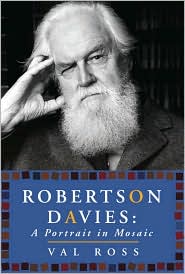April 10, 2009
Pot tells kettle to get a new editor!
Yah, I know. I don’t always produce the most polished product myself. I can’t spell and I still confuse the possessive of “it” from time to time and I’m very fond of run-on sentences. But you don’t pay to be here and nobody paid me to show up either, and most importantly, I don’t have an editor who is responsible for making me look more thorough than I am.
People who publish books do not have that excuse. They have, I am told, editors. Someone is paid a salary to make sure that the book which is produced from the manuscript is clean, coherent and is written in proper English. Nevertheless I have seen more bad grammar, continuity errors and puzzling editorial choices in the last year’s reading than I think I have seen before in my life. It could be, yes, that I am simply becoming a more careful reader. I don’t want to imply that there’s a conspiracy of incompetence out there amongst editors. Maybe I do want to appeal for an editorial job with a big publisher though. I’m happy to proofread for any of you. My services are very cheap.
It started early last year with a book of questionable quality from a big pulp publisher. I won’t call it out by name because I don’t want to admit that I read it. To give you an example of the kind of writing the author got away with, I give you the following:
“His hands trembled as he laid out the service; Laurence dismissed him once the meal was served and sighed a little when he had gone; he had thought of asking Giles to come along with him, as he supposed even an aviator might have a servant, but there was no use if the man was spooked by the creatures.”
 At the time I was absolutely shocked that a sentence like this could make it to print. Semicolons are not periods, I thought that was pretty obvious. And yet, later that year I found a similar, though not as grievous, mess in Amitav Ghosh’s Sea of Poppies. And this book was shortlisted for the Booker! Four of the seven sentences on the very first page (of the Viking hardcover I read) contain “colon splices”, inexplicable colons appending one thought to the previous. Witness the first line:
At the time I was absolutely shocked that a sentence like this could make it to print. Semicolons are not periods, I thought that was pretty obvious. And yet, later that year I found a similar, though not as grievous, mess in Amitav Ghosh’s Sea of Poppies. And this book was shortlisted for the Booker! Four of the seven sentences on the very first page (of the Viking hardcover I read) contain “colon splices”, inexplicable colons appending one thought to the previous. Witness the first line:
The vision of a tall-masted ship, at sail on the ocean, came to Deeti on an otherwise ordinary day, but she knew instantly that the apparition was a sign of destiny, for she had never seen such a vessel before, not even in a dream: how could she have, living as she did in northern Bihar, four hundred miles from the coast?
Colons aren’t periods either. Are they? An occasional sentence like the above would be forgivable, poetic even: but almost every one in the book is structured this way!
 I’ve decided to forgive Neil Stephenson’s editors for Anathem. I was puzzled at first as to why, on page 739, a meeting in a super-secret Cell is suddenly interrupted by a character who is not there and has not been seen for several hundred pages. In hindsight, one error (however glaring) in 935 pages is probably not bad, especially when so many of those pages are taken up with arcane mathematical theorics. But (she says, hoping someone from William Morrow is reading) I noticed it. My services as a proofreader are still on offer.
I’ve decided to forgive Neil Stephenson’s editors for Anathem. I was puzzled at first as to why, on page 739, a meeting in a super-secret Cell is suddenly interrupted by a character who is not there and has not been seen for several hundred pages. In hindsight, one error (however glaring) in 935 pages is probably not bad, especially when so many of those pages are taken up with arcane mathematical theorics. But (she says, hoping someone from William Morrow is reading) I noticed it. My services as a proofreader are still on offer.

I mentioned my editing concerns in a private blog last year and was told by one friend that the grammar I was complaining of is deliberate, and is what english and publishing students are taught nowadays. Really? To what end? Where is the cost saving here?